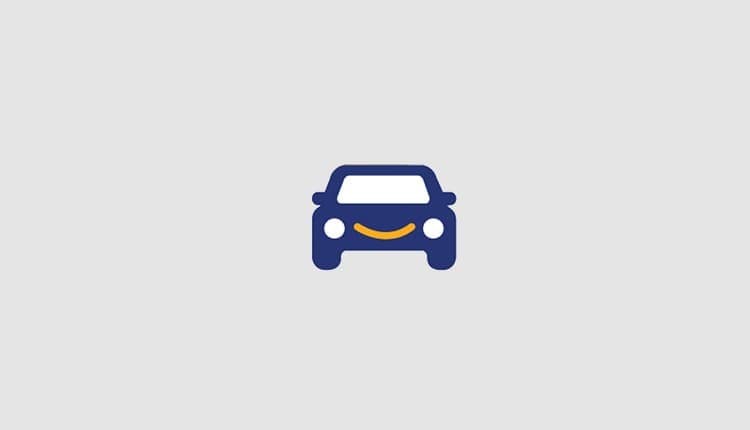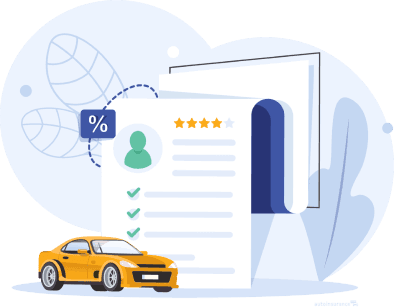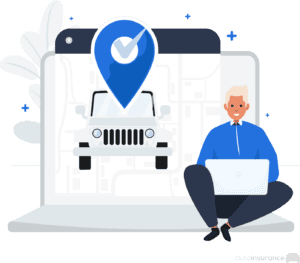
Is There Car Insurance Near Me? A Guide to Finding Local Car Insurance Companies
Expert advice for buying local coverage in your area
Get quotes from providers in your area

Before the dawn of the internet, buying car insurance meant either calling companies for quotes or visiting local agents in person. The web has made it easier to do comprehensive research and make informed decisions.
However, finding the right package near you requires balancing a number of priorities. In this article, we demystify the process and explain the best ways to buy quality car insurance near you. We start by explaining why your location determines your coverage needs, then move on to how to find the best coverage in the area for your needs.
How Much Coverage Do I Need?
Why do you have to provide your address or ZIP code when seeking a quote? It’s because insurance costs, requirements, and needs vary dramatically depending on where you live. Here, we break down the different local considerations to keep in mind when searching for auto insurance near you.

Average Cost of Car Insurance Near You
Baseline insurance costs can vary substantially by state. The average driver in Brooklyn, New York, for example, pays much more for insurance than someone living in Boise, Idaho.1
The reason for this is regional variance in risk. Insurance companies assess things like local collision, car theft, and car vandalism rates, as well as standard factors like your age, driving history, and credit score, to determine a quote. If you live in a city with high rates of theft and accidents, your premium is going to be higher than it is for someone living in a less risky area.
Minimum Auto Insurance Requirements by State
Where you live also determines how much coverage you are required to buy. All states have some minimum auto insurance requirements, but they vary significantly. For example, minimum liability insurance requirements factor directly into what you pay each month and your claims service. New Jersey asks for just $5,000 in minimum property damage liability coverage per accident, while Michigan requires $1 million in coverage for damage your car causes in-state!2
Of course, it is often a good idea to elect for more than the minimum coverage. While you can technically drive in New Jersey with just $5,000 in property damage liability per accident, you may be responsible for high out-of-pocket expenses if you get into an accident that causes more than $5,000 in property damage. It’s a good idea to weigh what you can afford with the amount of protection you get with each plan. Online quotes can help with this process.
Location-Specific Optional Coverage
The same advice applies for add-on insurance coverage; where you live may impact which useful but optional coverage you purchase. A driver with a new car in a city with high collision rates, for instance, may want a plan with accident forgiveness, while someone in Florida may opt for a company that can insure their boat as well.
If you have location-specific needs, take them into account when shopping around for auto insurance. Perks like roadside assistance are standard in some plans and pricey add-ons in others. Certain companies specialize in selling car insurance on its own, while others offer every insurance type under the sun, from renters insurance to life insurance.
TIP
You can often find potential savings and insurance discounts by bundling insurance products, so it’s a good idea to consolidate your coverage under one roof if possible.
Again, only you can decide which coverage is best for you, but it’s crucial to take your location into account beyond the bare minimum requirements.
Teen Driver Laws
Many states have regulations specifically for those under the age of 18. For example, some states, like Pennsylvania, have a nighttime curfew for those with a junior license,3 and 36 states and D.C. ban all cell phone use by teen drivers.4
Insurance costs can be higher for young drivers because they are considered higher risks. Do your research and learn more about the best teen policies.
Registering Your Vehicle With Your Local DMV
Before you can register your car with your local DMV, you usually need state-certified insurance. Requirements vary by state, but generally, once you purchase insurance, you will receive physical and virtual ID cards.
Your provider will also send an electronic notice of insurance coverage to the DMV. You then have a certain amount of time to register your vehicle from the effective date on your insurance ID card. Since the effective date can vary, check your local DMV website for more information.
How to Find Car Insurance Near You
Now that you understand the importance of locally attuned insurance buying, it’s time to explore the different ways you can purchase insurance near you. We’ve made it easy by laying out your options, so you can make an informed decision no matter your preferences and needs.
How to Buy Car Insurance in Person

Even in the days of the instant online car insurance quote, some still prefer the brick-and-mortar experience. One option for buying insurance is to find a local provider where you can purchase coverage in person. The process is quite easy, but you still have some decisions to make.
- Find an insurance provider or brokerage near you. Most commercial areas across the country have outposts for the major insurance companies.
- Prepare the information you need before you arrive. You’ll need basic personal information, your driver’s license, information about your car and driving history, and your current insurance card if you have one.
TIP
To purchase car insurance, you’ll need the personal details and driving history of every person you intend to include on the coverage.
- Show up at the office and state your intention to get a quote.
- Speak to an agent and share your needs. They will help you with the buying process and provide you with a quote. You can purchase coverage on the spot if you want, but we recommend getting multiple quotes from multiple providers.
These agents should be experts at navigating the ins and outs of state law, such as whether you need gap insurance, windshield coverage, or a state-specific requirement. Many who prefer in-person purchases appreciate the simplicity of this approach.
However, agents may be incentivized to offer pricier policies, since they are paid a commission based on how much you spend. There’s a chance they will try to upsell you on policy features you don’t need.
It’s also important to note that not all agents are the same. Captive agents, as they are commonly known, work exclusively for a single insurance provider. Large companies tend to have exclusive agents in almost every state. A captive agent will hold your hand through the entire process and provide a single point of contact for your entire relationship with the insurance provider.
However, what you gain in simplicity you lose in flexibility. Captive agents are more limited in the plans they offer. They will not help you compare between companies, but only within a single company. You are more or less at the mercy of whatever the agent offers you.
As an alternative, independent agents, or brokers, work with many different providers to offer a variety of policies and quotes. They can be a good option for buyers who want more flexibility in their coverage options. Instead of representing the insurance company, independent agents represent you, the purchaser.
There are still some downsides to working with an insurance broker, however. They tend to charge small fees and may not have access to quotes from companies that only use captive agents, like GEICO. If you have the money and want to work with a human to find coverage, engaging an independent agent can make sense.
Finally, it’s worth noting that some insurance companies do not have brick-and-mortar stores. By electing for an in-person purchase, you are forgoing the possibility of an online-only insurance provider like Esurance or Lemonade. For those who want to do more research on their coverage decision, there are better options out there.
How to Buy Car Insurance Over the Phone
If you don’t feel totally comfortable buying online but want to do a bit of exploration, calling an agent is a great way to help you find the best insurance coverage near you. The process is very similar to the one described above for buying in person, but it requires a bit more research upfront.
- Research the companies you would like to call. It’s a good idea to call a mixture of sources, from large national providers to local brokerages. This will give you an understanding of the fair rates out there.
- Prepare the information you will need to provide (see above).
- Make the calls. Tell the representative you’re looking to purchase coverage.
- Speak to an agent. Local agents have a tremendous amount of knowledge. They’ll ask you about your vehicle and your needs in order to provide quotes.
- Shop around to see where you’ll get the best rates. You might have to call several companies.
Calling an agent for quotes is a good middle ground between buying in person and purchasing online. It’s normal to shop around and make lots of calls; after all, that’s what buyers did for years before the advent of online quotes.
The downside of making phone calls to find a quote is simply that it’s a slow process. It takes much longer to call five insurance companies than to instantly compare quotes from dozens of providers at the same time. And of course, speaking to people always comes with the risk of communication errors. But for those who want to avoid online shopping, calling remains an option for purchasing coverage near you.
How to Buy Local Auto Insurance Online
Buying insurance online can be the most flexible and affordable way to get covered. Here’s how to do it:
- Research information on car insurance in general. It’s crucial to understand the ins and outs of different coverage options, as well as minimum requirements in your state. This will make it easier to compare options later. We offer several guides on how to get car insurance.
- Enter your ZIP code to compare quotes from top providers in seconds.
- Read objective reviews of the car insurance companies you are considering. Understand the pros and cons. Check out the National Association of Insurance Commissioners to see consumer complaints about each company, and read our own comprehensive auto insurance reviews.5
- Purchase the coverage you want, either online directly or by calling an agent and specifying your quote.
Digital insurance shopping can help you avoid common pitfalls that an unscrupulous agent may not warn you about. You may also learn about discounts that an agent may not consider. For example, if you are a student, you can often insure your car in the state where you study, which can be considerably cheaper. It’s always a good idea to check.
Perhaps most importantly, buying online helps you do an apples-to-apples comparison of coverage options. By using a quote tool, you will always get offers with identical liability levels, optional coverages, and deductibles. If you go from insurer to insurer for quotes, it can be more difficult to compare your options consistently.
Online quote comparison and research allows you to make the most informed decision possible. Once you’ve decided which route you are going to take for your research, it’s time to make a decision. The final section of this article lays out your options when it comes to choosing coverage.
Tips for Choosing the Best Car Insurance Near You
These days, almost every car insurance provider offers online quotes. Several only offer online quotes, with no phone or in-person options. Many providers allow you to complete the entire process over the internet, from quote to purchase. Sometimes you still have to contact an agent prior to purchase, however.
If this sounds confusing, we are here to help. This section gives an overview of the different types of insurance companies and discounts you can choose from in your search.

Cheapest Car Insurance in Your Area
While doing your research, you should see whether your provider of interest offers insurance in your area. Most large car insurance companies have branches all over the U.S., so you should be covered no matter where you live. Here are some of the top national car insurance companies that we’ve reviewed:
As you can see, top providers are a mixture of established and newer online-only players. Going with an established company has several advantages, such as national scale and reliability. On the other hand, newer online providers are often more user-friendly and can be cheaper than legacy options. Sites like AutoInsurance.com can help you compare and contrast these companies in detail.
Some insurance companies only operate in a particular set of locales. Mercury Insurance, for example, only covers New York drivers, while 21st Century auto insurance is only available to residents of California. Such local companies provide specialized services to a geographic area and keep costs low for consumers. To find local providers in your area, enter your ZIP code and see what companies offer insurance packages around you.
How to Lower Car Insurance Premiums
Short of moving, there’s not much you can do if you live in a high-cost area for car insurance. But there are certainly ways to keep auto insurance costs as low as possible, relative to your neighborhood. Depending on your provider and state regulations, you can raise your deductible, which would result in lower premiums. You can also drop coverage to the bare minimum required by your state, though that carries risks, as mentioned above.
Insurance companies sometimes offer incentives to lower premiums. The incentives vary by provider. Some companies provide discounts for taking a safe driving course or going a few months without an accident.
Bundling your car insurance with home or another type of coverage can result in dramatically lower premiums. The same applies to covering multiple cars or drivers. You can often stack several of these discounts together. Check out our savings guides for much more information on how to lower auto insurance costs.
Recap
Finding the best insurance around you is not the challenge it used to be. Consumers are more empowered than ever to make the right choice in their areas. A bit of upfront research can yield thousands of dollars in savings over the course of your driving career. We are here to help you navigate the process from start to finish.
If you still have questions about buying auto insurance near you, check out our auto insurance FAQs and our other auto insurance articles, which should provide all the answers you need. Remember to relax; the right local insurance option is out there, and you have resources to help you find it. Drive safe!
FAQ
We’ve provided answers to the most common questions from our readers.
All you need to purchase car insurance is your driver’s license, Social Security number, bank and/or payment details, and vehicle information (vehicle identification number, make, model, year, mileage, and safety features). You will need this information for each person you would like to include in the coverage. There are some situations where required documents vary, however, so you should always check with your potential provider.
If you do not own a car but still need car insurance, you will likely have to call companies for quotes. In these cases, you can buy car insurance as long as you have a valid driver’s license.
For car insurance, a six-month contract is not necessarily cheaper than a 12-month commitment when you compare it on a monthly basis. The main reason to go with a six-month over a 12-month commitment is for flexibility and more frequent rate reviews.
You typically cannot get month-to-month car insurance. The shortest term that is usually available is for six months. You can always cancel in the middle of a longer policy, though you should be aware of potential cancellation fees. Also, you might miss out on annual savings, as more than one major insurance agency offers discounts for annual policies.
You’ll typically save money if you pay for auto insurance in full upfront. Most insurance companies offer the ability to pay for your policy in monthly installments or in a lump sum. If you decide to take advantage of the payment in full, make sure you have the financial resources to do so comfortably. You still need to cover your deductible in the event of an accident.
Citations
Revealed: Most and least expensive places in the US for car insurance. Insurance Business America. (2020, Sep 23).
https://www.insurancebusinessmag.com/us/guides/revealed-most-and-least-expensive-places-in-the-us-for-car-insurance-234288.aspxGet Legal with New Jersey’s Basic Auto Insurance Policy. State of New Jersey Department of Banking & Insurance. (2011).
https://www.state.nj.us/dobi/division_consumers/insurance/basicpolicy.shtmlYoung Driver. Pennsylvania Department of Transportation. (2022).
https://www.penndot.gov/TravelInPA/Safety/TrafficSafetyAndDriverTopics/Pages/Young-Driver.aspxDistracted Driving – Cell Phone Use. National Conference of State Legislatures. (2021, Jul 20).
https://www.ncsl.org/research/transportation/cellular-phone-use-and-texting-while-driving-laws.aspxConsumer Home Page. National Association of Insurance Commissioners. (2022).
https://content.naic.org/consumer.htm
